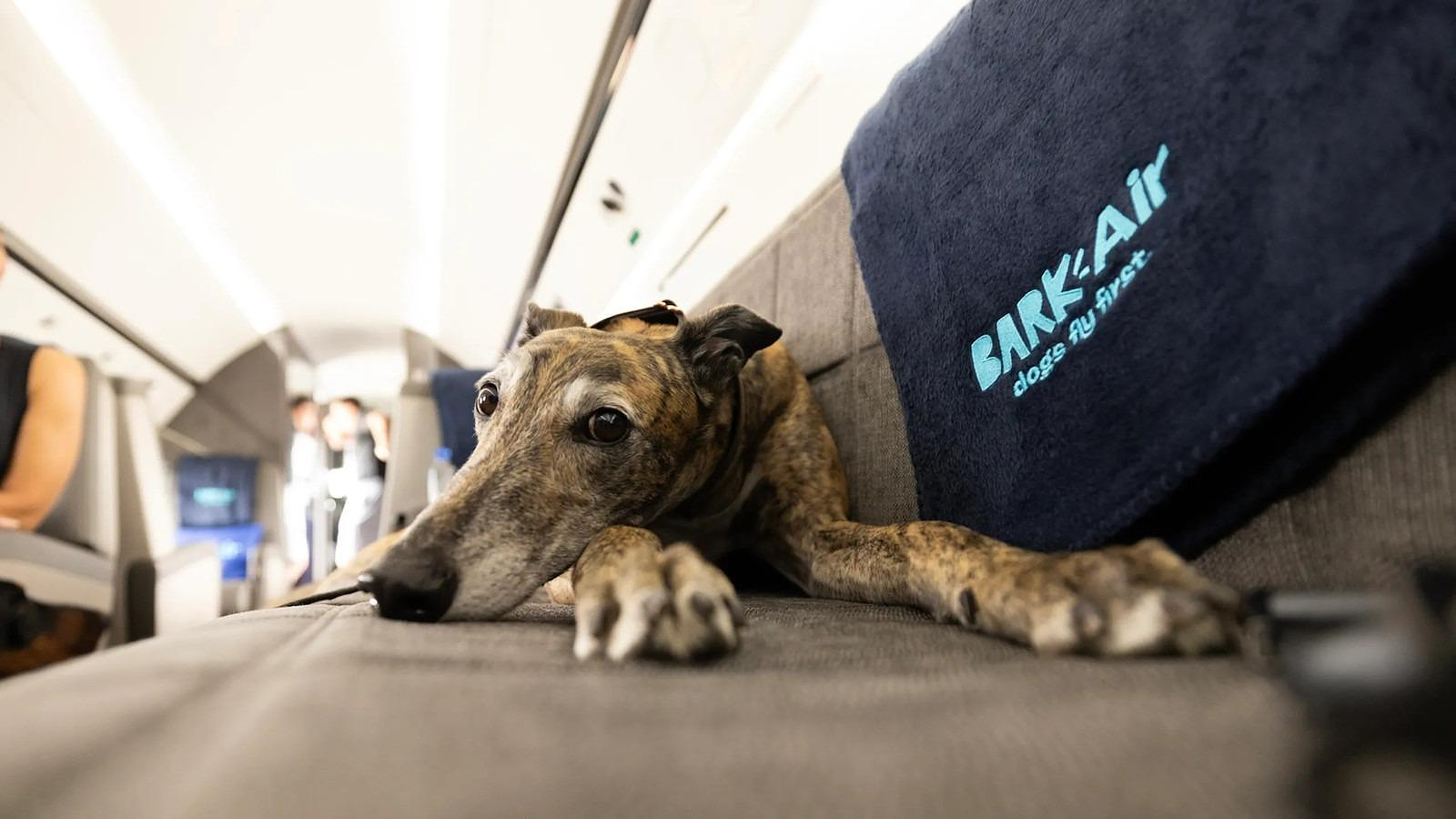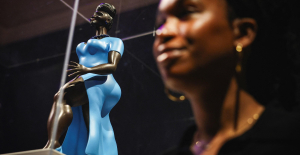When the German troops marched to war against France in 1870, one rumor frightened them above all: the French miracle weapon was the Zouaves, semi-wild soldiers who were implacable towards their opponents. As the wars in Crimea and Italy proved, they were irresistible and continued to fight even in hopeless situations.
Zouaves therefore played a special role in the articles of the war correspondents who followed the armies. They owed this not least to their colorful uniforms, which gave them an oriental look. Experienced observers made a conscious distinction between Zouaves and the no less exotic-looking Turkos, whose origins also lay in the French colonies in North Africa.
The history of the Zouaves begins with a decree by the French general Bertrand Clausel (1772–1842) of October 1, 1830. The general and later marshal had achieved the feat of making a career in Napoleon Bonaparte’s army and then – albeit temporarily on charges of high treason sentenced to death – to become the first governor of Algeria in the restored Bourbon regime.
Riding into Algiers at the head of the 37,000-strong expeditionary force that began conquering the country in the summer of 1830, Clausel quickly realized that French rule could not be based on European troops alone. A "Corps des Zouaves" was founded in order to win over the powerful Kabyle tribes of the mountains, who had already distinguished themselves as a military reservoir under Ottoman rule.
Since members of other tribes were soon accepted, the name initially referred to a local association, which, however, was led by French officers and non-commissioned officers. In 1831 they were joined by a European force, also recruited from non-French mercenaries: the Foreign Legion. With the help of these units, the Algerian resistance under Clausel's successors was broken by the late 1840s, with their members gaining a reputation for extreme steadfastness but also brutality.
Their prestige as an elite force also made the Zouaves lucrative for Europeans. Above all, French people who lived in Algeria came forward. This changed the character of the unit. While the Zouaves mainly served Europeans, the Turkos were dominated by North Africans. True, their uniforms varied the colors of the French infantry. But style and habit gave both corps an exotic appearance.
Their actions in the Crimean War (1853-1856) made the Zouaves real national heroes. In the fighting at Alma, however, to everyone's astonishment, they put down their packs, swam across the river, and climbed "like monkeys" up the rocks over the far bank. "The Zouaves were so well hidden that a well-trained officer would hardly have been able to spot them with his own eyes," explained one officer. From there they took the Russians under fire.
Her fame eventually persuaded the Papal States to form a similar entity in 1861. From the outset, however, the papal Zouaves were recruited from among young Catholics willing to fight against the militias of the Italian national movement. They had the orientalising uniform in common with their French models. Most of the approximately 4,500 soldiers came from the Netherlands, France, Belgium and francophone Canada. In 1867, at Mantena, they defeated the fighters of Giuseppe Garibaldi alongside the papal army.
In the war against Prussia and her German allies, the French public expected miracles from the Zouaves. In fact, they fought with a determination that many French units lacked in the border battles of August 1870. "The Turkos seemed discouraged, the Zouaves defiant, the infantrymen generally dejected and despondent," noted the famous British war correspondent William Howard Russell after visiting a prison camp. "They showed no mercy towards the Germans," said a German observer. "But as soon as they got into the crowd, they cried out imploringly: 'Pardon'!"
Zouave regiments fought in both of France's World Wars and several of France's colonial wars. It was not until 1963 that their last units were disbanded in the wake of Algerian independence.
You can also find "World History" on Facebook. We are happy about a like.

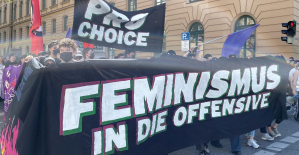 Germany: abortions should be authorized up to 12 weeks, concludes a commission launched by Olaf Scholz
Germany: abortions should be authorized up to 12 weeks, concludes a commission launched by Olaf Scholz Knife attack in Australia: who are the two French heroes congratulated by Macron?
Knife attack in Australia: who are the two French heroes congratulated by Macron?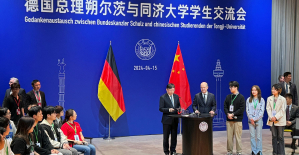 Faced with an anxious Chinese student, Olaf Scholz assures that not everyone smokes cannabis in Germany
Faced with an anxious Chinese student, Olaf Scholz assures that not everyone smokes cannabis in Germany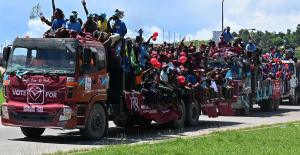 In the Solomon Islands, legislative elections crucial for security in the Pacific
In the Solomon Islands, legislative elections crucial for security in the Pacific Covid-19: everything you need to know about the new vaccination campaign which is starting
Covid-19: everything you need to know about the new vaccination campaign which is starting The best laptops of the moment boast artificial intelligence
The best laptops of the moment boast artificial intelligence Amazon invests 700 million in robotizing its warehouses in Europe
Amazon invests 700 million in robotizing its warehouses in Europe Inflation rises to 3.2% in March due to gasoline and electricity bills
Inflation rises to 3.2% in March due to gasoline and electricity bills Against drug trafficking, the mayor of Amsterdam advocates the regulation of cocaine
Against drug trafficking, the mayor of Amsterdam advocates the regulation of cocaine Hachette Livre removes Isabelle Saporta from management of Fayard
Hachette Livre removes Isabelle Saporta from management of Fayard Where is the MSC Aries, the ship boarded by Iran?
Where is the MSC Aries, the ship boarded by Iran? Denis Olivennes at Le Figaro: “CMI France discusses with Natacha Polony the future of Marianne”
Denis Olivennes at Le Figaro: “CMI France discusses with Natacha Polony the future of Marianne” 2024 Candidates Chess Tournament: Relive the Crucial Nepo-Gukesh Game
2024 Candidates Chess Tournament: Relive the Crucial Nepo-Gukesh Game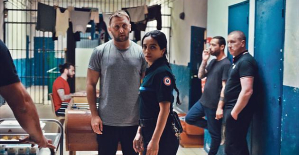 Borgo, by Stéphane Demoustier: locked outside
Borgo, by Stéphane Demoustier: locked outside Release of hostages and immediate ceasefire: at the Venice Biennale, the Israeli pavilion resonates with Gaza
Release of hostages and immediate ceasefire: at the Venice Biennale, the Israeli pavilion resonates with Gaza Two Russian artists declared “terrorists and extremists” because of a play
Two Russian artists declared “terrorists and extremists” because of a play Skoda Kodiaq 2024: a 'beast' plug-in hybrid SUV
Skoda Kodiaq 2024: a 'beast' plug-in hybrid SUV Tesla launches a new Model Y with 600 km of autonomy at a "more accessible price"
Tesla launches a new Model Y with 600 km of autonomy at a "more accessible price" The 10 best-selling cars in March 2024 in Spain: sales fall due to Easter
The 10 best-selling cars in March 2024 in Spain: sales fall due to Easter A private jet company buys more than 100 flying cars
A private jet company buys more than 100 flying cars This is how housing prices have changed in Spain in the last decade
This is how housing prices have changed in Spain in the last decade The home mortgage firm drops 10% in January and interest soars to 3.46%
The home mortgage firm drops 10% in January and interest soars to 3.46% The jewel of the Rocío de Nagüeles urbanization: a dream villa in Marbella
The jewel of the Rocío de Nagüeles urbanization: a dream villa in Marbella Rental prices grow by 7.3% in February: where does it go up and where does it go down?
Rental prices grow by 7.3% in February: where does it go up and where does it go down? Europeans: the schedule of debates to follow between now and June 9
Europeans: the schedule of debates to follow between now and June 9 Europeans: “In France, there is a left and there is a right,” assures Bellamy
Europeans: “In France, there is a left and there is a right,” assures Bellamy During the night of the economy, the right points out the budgetary flaws of the macronie
During the night of the economy, the right points out the budgetary flaws of the macronie Europeans: Glucksmann denounces “Emmanuel Macron’s failure” in the face of Bardella’s success
Europeans: Glucksmann denounces “Emmanuel Macron’s failure” in the face of Bardella’s success These French cities that will boycott the World Cup in Qatar
These French cities that will boycott the World Cup in Qatar Bundesliga: Naby Keita suspended by Werder Bremen until the end of the season
Bundesliga: Naby Keita suspended by Werder Bremen until the end of the season Euro 2024: the Blues reveal their opponents for friendlies in June
Euro 2024: the Blues reveal their opponents for friendlies in June Cycling: De Marchi wins the 2nd stage of the Tour of the Alps
Cycling: De Marchi wins the 2nd stage of the Tour of the Alps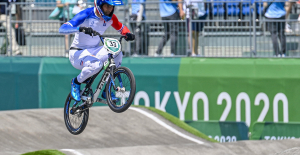 Paris Olympics 2024: Joris Daudet (BMX) candidate to be French flag bearer
Paris Olympics 2024: Joris Daudet (BMX) candidate to be French flag bearer






